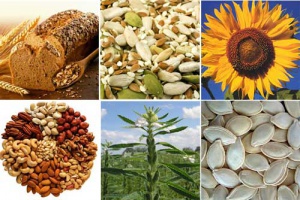Vitamin B15
Contents
Description
This vitamin is one of the most controversial vitamins of the vitamin B group. In fact, it is so disputed that many argue it is not actually a vitamin at all and studies show contrasting results at best. While some claim benefits of vitamin B15, others say it can cause adverse side effects and that it is not a vitamin, essential to the human body, at all. Depending on where you live, vitamin B15 may not be readily available for consumer purchase.
Discovered in 1951 by Dr. Ernect Krebs Sr. and Dr. Krebs Jr., Vitamin B15 was found during experimentation with apricot kernels although much was yet unknown about the vitamin then such as if it was vital to humans or considered to be and useful as a vitamin. Finally, in the 70's, vitamin B15 was put into vitamin supplement production. It is illegal in the modern day to distribute vitamin B15. Vitamin B15 is part of the B vitamins group essential to cell metabolism. A water soluble vitamin, Vitamin B15, also known as pangamic acid, is not found to be a part of the 8 main essential vitamins that make up the vitamin B complex. This vitamin assists in the forming of amino acids, the oxidation of cell production and glucose and is a powerful antioxidant essential to optimum health. This vitamin may also stimulate the endocrine system for maximum liver functioning in the body. Vitamin B15 has a variety of health and beauty benefits and is found in many foods that we consume.
Health Benefits
Coined as the "anti-stress vitamin" as it stimulates the anti-stress hormone in the body, vitamin B15 has a variety of health benefits to prevent and treat various illnesses and conditions in humans. Vitamin B15 acts as a powerful antioxidant and protects the body from free radical damage such as pollution and the damage caused by UV rays. It also helps treat asthma, synthesize proteins and prolong the life of cells in the body. It may have certain benefits helping alcoholics struggling with addiction by reducing their alcohol cravings. Vitamin B15 has been shown to lower cholesterol levels and protect the liver and its functions as well as assist with metabolic issues such as low energy and weight loss and may benefit those with hypertension, heart disease, schizophrenia, and atherosclerosis. Although there are many health claims for this vitamin, some say it may benefit those who suffer from cancer while others obtain it shows signs of being carcinogenic.
Beauty Benefits
The only noted beauty benefits of vitamin B15 are Europeans' claims that it acts as a powerful anti-aging substance as it is an antioxidant and protects against free radical damage. It has been said to provide many benefits to the skin and some studies show it to be beneficial to skin conditions and disorders. It is known as the anti-stress vitamin for its ability to affect and stimulate the stress hormone and may even help increase energy levels and promote weight loss due to its metabolism benefits. Not enough is known about vitamin B15 to give sufficient evidence further than that, unfortunately, and much of the studies that have been done are widely disputed in various countries around the world.
Daily Dose Recommendations
In the USA, vitamin B15 is not approved for use by the FDA, although other various forms of this vitamin are taken in supplement form such as dimethyl glycine (DMG). It is illegal to use in Canada as their studies have shown it to be an unsafe substance. In Russia, pangamic acid is widely used and praised to treat alcoholism and its related issues, treats asthma, allergies and fatigue and has been utilized in the treatment of autistic children. In Europe, vitamin B15 is used for anti-aging purposes as it is a potent antioxidant and considered to be very beneficial to those under large amounts of stress or those that reside in highly populated cities. In France and Canada, pangamic acid is not recognized as a vitamin.
Because this vitamin is not approved by the FDA in the US, there is no USRDA (U.S. Recommended Daily Amount), but this vitamin may be substituted with its alternate form of DMG instead.
- Athletes: 100-150 Mg. /Day used for Increased Energy, Endurance & Reduced Fatigue
- Average Daily Amount: 25-50 Mg/Day
- Therapeutic Use: 50-500 Mg./Day
Food Sources
- Whole grains such as brown rice
- Sesame, Sunflower & Pumpkin Seeds
- Nuts & Seeds
Water and direct sunlight are said to reduce the availability of this vitamin in food sources.
Deficiency
Again, this vitamin is very controversial and opinions on the matter of this vitamin are highly disputed and debated. Some claim there are no signs of deficiency or sufficient proof that this vitamin is essential to the human diet while others came deficiency symptoms exist and prevail to show themselves in the absence of vitamin B15. Symptoms of a vitamin B15 deficiency are similar to that of vitamin B13. Poor tissue oxygenation is common as well as nerve, heart and gland diseases and disorders are at times onset by a deficiency of vitamin B15.
Toxicity,Over Dose, & Side Effects
This vitamin is so controversial that there are many differing opinions on toxicity. Some say there is no known level of toxicity for vitamin B15, while others claim there are sometimes severe and dangerous side effects that may include toxicity with the use or supplementation of this vitamin. The side effects or symptoms of an over dose may include headaches, depression, nausea, skin rashes, skin irritation, and severe fatigue.
